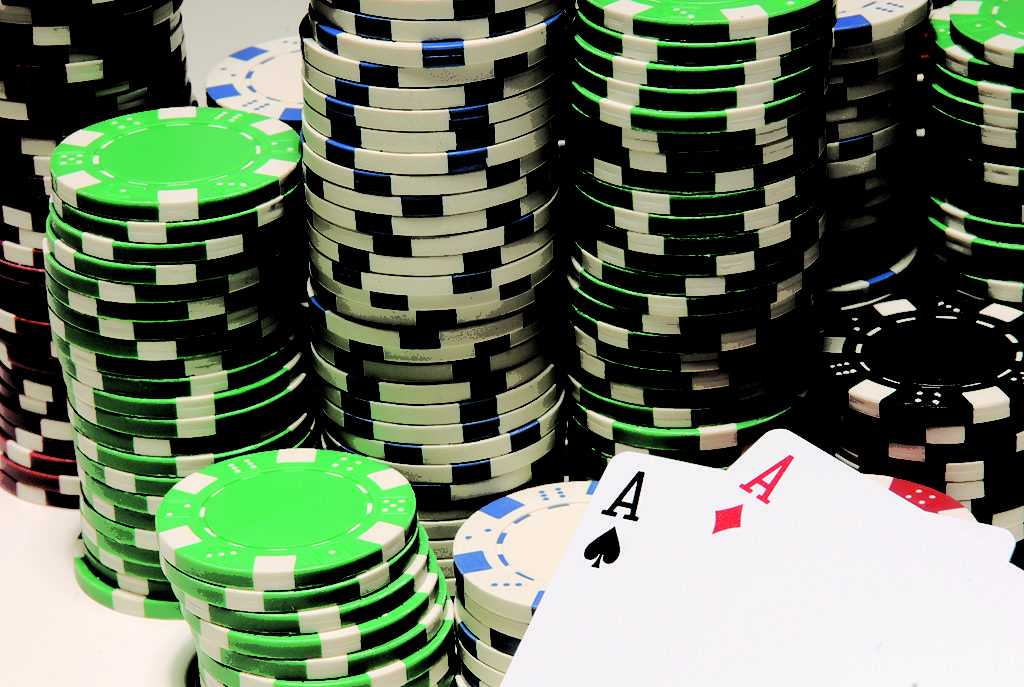Bluffcatching the river can be a complex topic in poker. The simple advice in this article should help to get us up to speed in the shortest time frame possible.
What is Bluffcatching?
Bluffcatching implies that we are thinking about calling the river when holding a “bluffcatcher.” A “bluffcatcher” is a hand that will only win if our opponent is bluffing. (However, it should comfortably beat all of his bluffs).
If our holding beats some of our opponent’s value hands, then it is not correct to refer to our hand as a “bluffcatcher.” Bluffcatchers in hold’em are most commonly mid pairs and weak top pairs.
When is Bluffcatching Correct?
Most poker players aside from absolute beginners are familiar with the concept of “pot odds.” Pot odds tell us how frequently we need to win in order for calling to be correct and is a function of the bet-size our opponent is using.
For example, there is $100 in the middle on the river and our opponent bets $50. How often does he need to be bluffing in order for us to have a profitable call with our bluffcatcher?
In terms of pot odds, we are investing exactly 25 percent of the total pot if we were to call ($50 out of the $200). We would hence need to win more than 25 percent of the time in order for calling to be correct. Since the only way we can win with a bluffcatcher is if our opponent is bluffing, we need our opponent to be bluffing more than 25 percent of the time.
How Much is Villain Bluffing?
So all we need to do is figure out how often villain is bluffing. Easy right? Unfortunately, no. Unless we have some history with our opponent, we won’t necessarily know how often he is bluffing.
This is not to say we are completely in the dark, however, there are some general trends that the average player will conform to.
Villain Fires Three Streets: Most opponents will not be bluffing enough to incentivize calling with bluffcatchers. This means that most of one-pair hands should be folded when facing a three-barrel.
Villain Fires Turn and River after Flop Check: Many villains will be bluffing here often enough where we should avoid folding our best bluffcatchers. If we have a good second pair in no-limit hold’em, we’ll generally avoid folding.
Villain Fires River after Checking Flop and turn: Many villains will be bluffing far too frequently in this scenario. We should avoid folding any pair in most cases, even on some of the scarier board run-outs.
These are generalizations and should be adjusted based on the type of opponent we are facing. Just because the average opponent bluffs far too much on the river after checking the flop and turn, it does not mean that all players will. Some players bluff far too much in general, other players never bluff.
A big mistake that some players make is rigidly sticking to an optimal bluffcatching strategy despite the fact that villain never bluffs. The way we exploit a villain who doesn’t bluff enough is to fold all bluffcatchers.
Psychology and Mental Game
In the earlier example, we saw a situation where we should call the river if we expect to win more than 25 percent of the time. For example, if we won 30 percent of the time, the call would be profitable.
To put this into context – we should be calling in many river situations despite the fact that we are unlikely to win. This should not be used as an excuse to make overly speculative river calls, but rather to help us understand that losing frequently when calling rivers does not necessarily imply we are making a mistake.
If we were instead to only call rivers in scenarios where we expect to be a favorite to win the hand, we’d find ourselves folding far too many rivers, which is something that an astute opponent would be able to exploit.
Good players get comfortable with the idea of calling, expecting to lose with a high frequency, and letting the pot odds take care of the rest. Players with a weak mindset may become concerned that they are losing so frequently and mistakenly try to tighten up their river calling range.
The Importance of Folding in Poker
Sometimes it can be hard to think of folding as a “winning play” in poker. After all, once we fold, we immediately forfeit all of the chips in the pot.
Despite this, folding is one of the most important tools in a poker player’s arsenal. Any time we correctly fold in a scenario where our opponent would call, it increases the win rate differential between us. In other words, good folding fundamentals can absolutely make the difference between a break-even poker player and a big crusher.
To help improve our folding fundamentals, why not check out the following guide on folding in poker?



